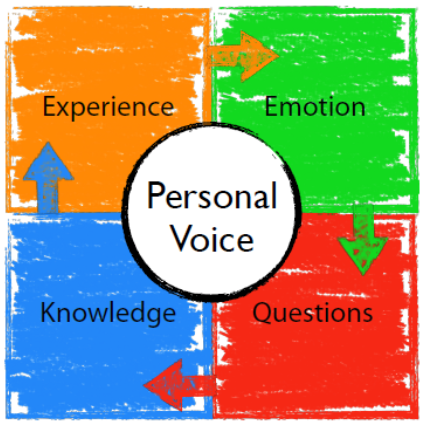
Personal Voice
Speaks in a personal, introspective voice, rather than making dispassionate, clinical observations. This first-person “I” voice is maintained throughout the reflection, in all of the other components, revealing the thoughts, feelings, personality, and character of the writer.
Knowledge: Intellectual Component
Includes an intellectual component revealed by the writer’s access to a vocabulary of theories, concepts, and ideas from his theme-based coursework. In exploring his understanding of the concepts, ideas, or theories, the writer is able to discuss his experience in a new light, grapple with the consequences or implications of those ideas, articulate an emotional response, and raise new questions.
Experience: Cases, Stories, and Examples
Provides details, cases, stories, and examples derived from the writer’s personal observations and experiences in particular contexts. The stories are about moments of personal growth, insight, and change, and they demonstrate a willingness on the part of the writer to examine his own personality and character.
Emotion: Affect or Emotional Response
Reveals the writer’s affect or emotional response to his or her personal observations and experiences. An emotional response is communicated as the writer explores his understanding of and response to the intellectual component, his experience, and/or the connections between them and the insights and change that emerge.
Questions: New Questions and Issues
Posits issues and new questions which grow out of the writer’s analysis of personal experiences and understanding of concepts, ideas, or theories. The authenticity of the questions is revealed in what the writer says throughout the reflection, and the questions clearly motivate or drive future inquiry and learning.